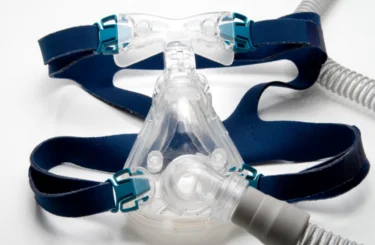
Third-Shift Workers at Increased Risk for Car Accidents, Endangering Others
Roughly 20 percent of the full-time workforce performs shift work, which often requires driving through the night. Unfortunately, motor vehicle accident rates are astronomically high among this group, putting other drivers and passengers at risk.
According to University of Missouri researchers, shift workers are at risk of a condition termed Shift Worker Sleep Disorder (SWSD), making sufferers 300 percent more likely to be involved in a collision. Compare this to the mere 30-percent increase in accidents among those with sleep disorders like insomnia or sleep apnea.
The Effect of Sleep Deprivation on Driving
SWSD affects an estimated 10 to 40 percent of all shift workers and can make it challenging for them to adjust to sleep cycle changes. Sufferers have difficulty falling and staying asleep when they have the opportunity. As a result, they experience significant sleep deprivation, proven to have surprising effects on driving ability.
In fact, the U.S. National Highway Traffic Safety Administration attributes nearly 100,000 traffic crashes per year to driving while sleep-deprived. These accidents cause an estimated 1,500 deaths and 70,000 injuries. The effects of sleep deprivation on driving abilities are so pronounced that drowsy driving has been likened to driving while intoxicated.
Sleep deprivation can significantly decrease reaction time and awareness in the same way alcohol can. Alarmingly, even missing just an hour or two of sleep can double the risk of a car crash. Sleep-deprived driving can cause all types of accidents, but common causes include:
- Falling asleep at the wheel.
- Failing to adjust speed to weather conditions.
- Drifting out of a lane.
- Neglecting to signal when changing lanes.
- Driving on the wrong side of the road.
Shift Worker Liability
Unfortunately, an increased risk of car accidents brings an increased risk of lawsuits. Even as sleep deprivation is a more forgivable cause of driving error than intoxication or texting, the danger to drivers can be the same. For this reason, the legal system does not give special passes to those suffering from SWSD.
Car accident cases are based on negligence, which carries an objective standard of proof. The defendant’s actions are compared to those of a reasonably prudent driver to establish liability. If, for example, an exhausted shift worker drove without headlights or failed to signal when changing lanes, the jury could not consider his exhaustion as an excuse when evaluating liability. The question would simply be whether the shift worker’s actions met the standard of care for drivers in general.
Victims of Shift Worker Motor Vehicle Accidents
Anyone who has suffered an accident knows that it can completely upend your life. In addition to the obvious property damage and inconvenience, serious injuries can have dramatic and lasting consequences on a victim’s ability to work and live as they once did.
Those injured by sleep-deprived shift workers should not pay for their damages alone. A personal injury lawsuit can lead to the recovery of medical bills, lost earnings, home care costs, and other accident-related expenses. While nothing can undo the consequences, removing the financial burden can make it much easier to create a new normal.
Our firm has decades of experience representing accident victims, and we take our commitment to our clients very seriously. If you have been injured in an automobile, trucking, motorcycle, or other accident, contact our firm for a free consultation.
Robert B. Sickels
For more than 30 years, Robert Sickels has successfully represented plaintiffs involved in complex personal injury, medical negligence, and products liability matters.





